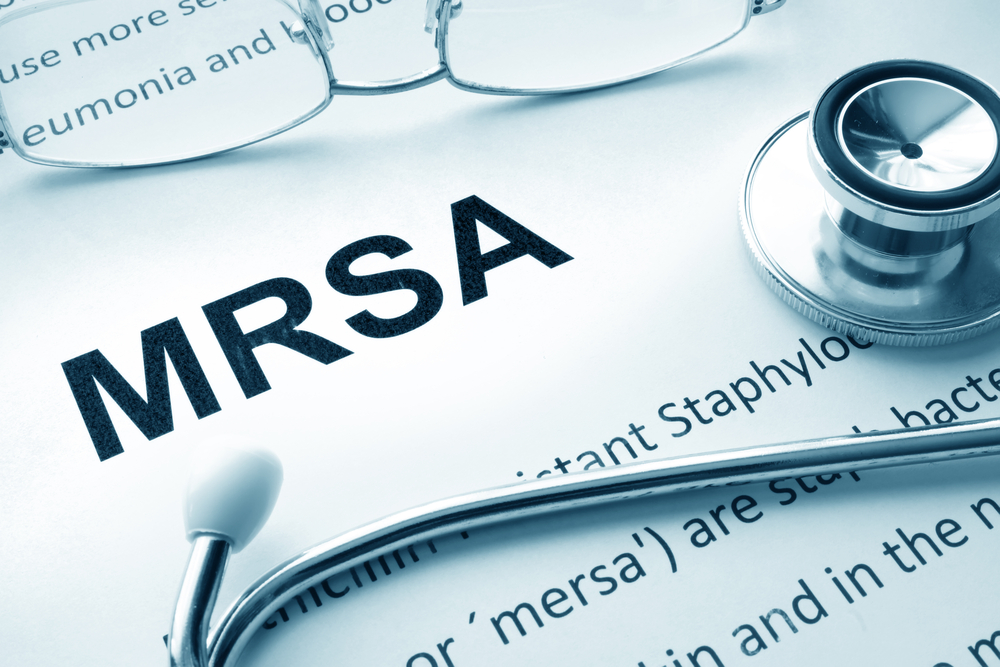Synspira Therapy Eliminates Antibiotic-resistant Lung Bacteria, Study Shows

A therapy whose developers say could revolutionize the battle against antibiotic-resistant lung infections in cystic fibrosis patients eliminated resistant Staphylococcus aureus in a lab, a study reports.
The finding dealt with Synspira’s polycationic glycopolymer SNSP113 as a stand-alone treatment. The study also showed that the therapy increased the punch of antibiotics used to counter methicillin-resistant S. aureus, or MRSA.
Synspira’s partner, Synedgen, conducted the study, titled “In Vitro activity of novel glycopolymer against clinical isolates of multidrug-resistant Staphylococcus aureus.”
Synedgen develops glycopolymer-based treatments for infections and inflammatory disorders. Synspira obtained the rights to any inhaled treatments that Synedgen develops for lung diseases.
Chronic pulmonary infections are common in CF patients. Bacteria tend to colonize and form treatment-resistant layers, called biofilms, in their airways.
The number of antibiotic-resistant bacteria is growing alarmingly, experts say. They are harder to fight because they do not respond to a lot of treatments.
MRSA infections often lead to CF patients having to use more intravenous antibiotics, being hospitalized more, and experiencing a faster decline in lung function.
SNSP113 is an alternative to traditional antibiotic strategies for treating MRSA and multidrug-resistant infections in CF patients.
It disrupts bacterial biofilms and loosens the mucus in CF patients’ airways, exposing the bacteria that is growing there to antibiotics. It also reduces Burkholderia cepacia’s resistance to antibiotics by breaking down the bacterias’ outer layer.
The study, published in the journal Plos One, investigated the polycationic glycopolymer’s ability to fight multidrug-resistant S. aureus and MSRAs, and its ability to work with conventional antibiotics to counter resistant bacteria.
Researchers said the glycopolymer demonstrated potent activity against all the multidrug-resistant MRSA bacteria they tested and against other kinds of respiratory bacteria. The team said it did a good job of breaking down the bacterias’ membranes, unlike many antibiotics they tested.
The combination of the polycationic glycopolymer and antibiotics significantly reduced the minimum dose of antibiotic required to kill the bacteria, researchers said. The polycationic glycopolymer resensitized bacteria to the antibiotics, making them more vulnerable.
“The study published today explores how PAAG [the polycationic glycopolymer] can enhance the efficacy of current antibiotics used to treat MRSA, a common pathogen in patients with cystic fibrosis, who face frequent complications from MDR [multidrug-resistant] bacteria,” Shenda Baker, Synspira’s chief executive officer, said in a press release.
“PAAG is the active component in Synspira’s inhaled pulmonary candidate SNSP113, which is currently in a Phase 1 clinical trial for the treatment of CF,” Baker said.
“This new class of glycopolymers may provide a new tool in the battle against multidrug-resistant bacteria,” said John Uhrig, one of the study authors. “PAAG’s ability to permeabilize bacteria reduces their ability to respond to a variety of antibiotic challenges, and thus has tremendous potential for treating MDR infections.”







